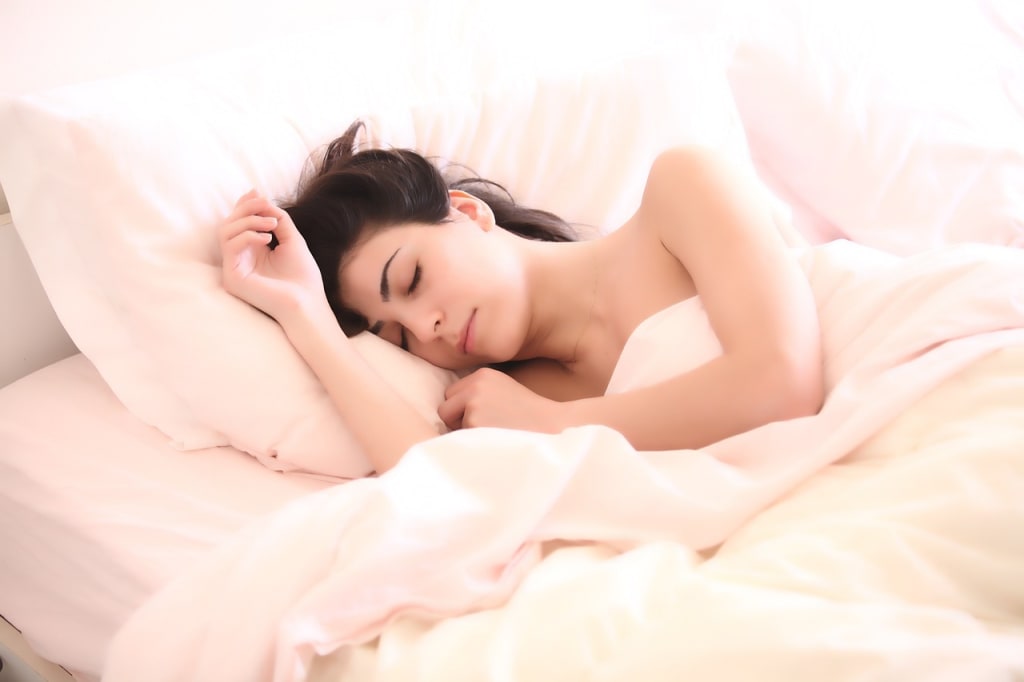Sleep instead of excess weight.
How to sleep properly to lose weight

By 2025, one in five people on Earth will be obese, according to a forecast from a collaboration studying risk factors for non-communicable diseases. And it’s not just about poor nutrition and low physical activity. As several research teams note, lack of sleep prevents you from getting rid of extra pounds. Anyone who sleeps less than the recommended eight hours a night tends to have difficulty losing weight, even if they follow a strict diet.
Diet dreams
In 2017, Korean scientists, analyzing data on the health and habits of almost 17 thousand people, noticed that lack of sleep contributes to obesity and related diseases. Those who slept less had more body fat and were unsuccessful in their efforts to lose weight.
Similar results were obtained at the University of Chicago ( USA ). Volunteers who slept only five and a half hours a night for almost two weeks lost weight more slowly than those who rested eight and a half hours a night. Both groups ate a special diet with a reduced calorie intake.
According to biologists from the University of Southern California (USA), sleeping on the weekend will not help. They observed 36 volunteers trying to lose weight. Everyone adhered to a strict diet, but some spent less than the required eight hours in bed on weekdays, and more on weekends.
Eight weeks later, it turned out that all study participants had lost about the same amount of weight. Only in those who did not have sleep problems, weight loss occurred mainly due to a decrease in fat mass, and in those who were sleep-deprived, it was due to lean tissue.
Gluttony from lack of sleep
American and Belgian researchers explain weight gain due to lack of sleep by the action of hormones that affect appetite. In 12 young healthy volunteers with sleep deficiency, ghrelin levels increased and leptin levels decreased. The first increases appetite - it is also called the hunger hormone. The second, on the contrary, is responsible for the feeling of satiety. Fluctuations in these hormones may determine that people who sleep less than normal tend to be more likely to be overweight.
Biologists from Bristol ( UK ) and Stanford (USA) universities came to the same conclusions . They studied blood samples, health data, body weight and habits of thousands of people suffering from certain sleep disorders. It turned out that study participants who slept little had increased ghrelin and decreased leptin.
This combination is associated with a feeling of hunger and makes you overeat. This is why it is so difficult for those who lack sleep to stick to diets, the authors of the work say.
A study by Japanese scientists confirms that lack of sleep, even for three days, reduces leptin levels by almost ten percent. Because of this, a person feels hungry more often, especially in the late hours before bed. At the same time, the body spends the same amount of energy as before. As a result, chronic sleep deprivation may well lead to uncontrolled weight gain, the researchers note.
Disturbed brain
According to American scientists, those who sleep little are prone to overeating due to increased activity in areas of the brain that play a role in appetite regulation and the reward system. In volunteers who spent no more than four hours a day in bed, these areas of the brain became more active in response to food stimuli, especially sweets and fats.
As scientists from the Medical Center at the University of Chicago (USA) found , the so-called endocannabinoids, substances synthesized in the body and similar in structure and action to the active components of marijuana, may also be to blame for this. The concentration of one of them - 2-arachidonoyl-glycerol (2-AG), responsible for the pleasure of food - is affected by a constant lack of sleep.
In the experiment, 14 healthy volunteers first slept eight hours a day, and then only 4.5 hours. Each stage lasted four days: for the first three, everyone received the same food, and on the fourth they were additionally offered cookies, candy and chips.
Study participants consumed more sweets and fatty foods at the end of the second part of the test, that is, after three days of short sleep. And mainly in the late evening and even if two hours before you ate a portion with 90 percent of the daily calorie intake. On average, the snacks added about three hundred extra calories to each person. This, according to the authors of the work, is significantly more than what is needed to restore strength after three extra hours of wakefulness.
Throughout the experiment, scientists measured the concentration of endocannabinoids in the blood of volunteers. It turned out that with sleep deprivation, daytime 2-AG levels increased by 33 percent above normal and did not decline until nine o'clock in the evening to reach a minimum at night, as is usually the case. This means that it was the high concentration of these substances that could provoke excessive consumption of cookies, sweets and chips, the authors of the work suggested.
They note that such late snacks are clearly unnecessary, so the lack of sleep that provokes them very quickly turns into weight gain. Considering that sleep-deprived people also have a reduced sensitivity of body tissues to insulin, such a habit in the long term is fraught with obesity and its associated diseases.
About the Creator
Nazir Bhatkar
I am a digital marketer and content writer.
Enjoyed the story? Support the Creator.
Subscribe for free to receive all their stories in your feed. You could also pledge your support or give them a one-off tip, letting them know you appreciate their work.






Comments (1)
Sleep is the key to many things